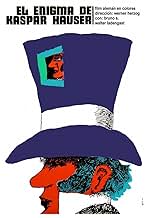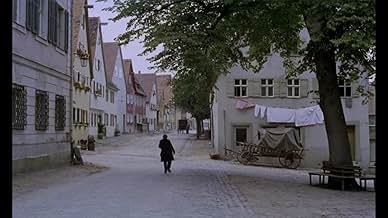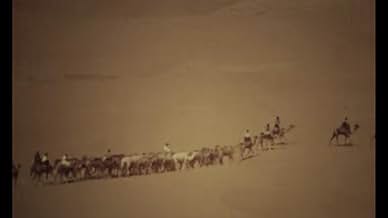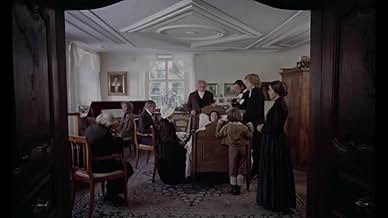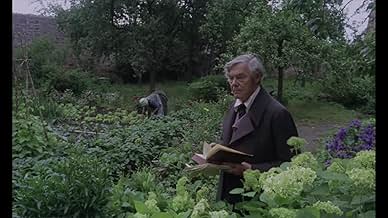VALUTAZIONE IMDb
7,7/10
19.747
LA TUA VALUTAZIONE
Un giovane di nome Kaspar Hauser appare improvvisamente a Norimberga nel 1828, a malapena in grado di parlare o camminare, e con uno strano biglietto di carta alle mani.Un giovane di nome Kaspar Hauser appare improvvisamente a Norimberga nel 1828, a malapena in grado di parlare o camminare, e con uno strano biglietto di carta alle mani.Un giovane di nome Kaspar Hauser appare improvvisamente a Norimberga nel 1828, a malapena in grado di parlare o camminare, e con uno strano biglietto di carta alle mani.
- Regia
- Sceneggiatura
- Star
- Premi
- 5 vittorie e 3 candidature totali
Recensioni in evidenza
This is the third Werner Herzog film I have watched. The first two were Signs of Life and Aguirre: The Wrath of God. All for themselves and God against All is by far my favorite Herzog movie (and my favorite title). The exploration of Kaspar's primitive mind was fascinating and, at times, even humorous. I enjoyed Kaspar's disdain for the arrogant priests and scientists (but especially the priests!). Like every Werner Herzog movie I've seen thus far, the film does not progress at breakneck speed. This is definitely a turn-off to most movie-goers. I can relate. (Signs of Life had me checking my signs of life). However, I felt that the significant and often humorous dialogue more than made up for the admittedly slow pace.
EVERY MAN FOR HIMSELF AND GOD AGAINST ALL (Werner Herzog - West Germany 1974).
Lacking a traditional narrative or dramatic structure and full of obscure images, this film feels more like a hypnotic dreamlike experience. It also features one the more enduring trends in Herzog's work: the featuring of individuals with exceptional physical or psychological conditions.
The film is based on the true story of Kaspar Hauser, a young man who suddenly appears on the market square in the German town of Nuremberg in 1828. This strange occurrence has become one of the most enduring inspirations in German history, literature and science, with well over a thousand books written on the case. When Kaspar Hauser was found, he could barely grunt, let alone speak and caused a minor sensation among the locals. After living in a cellar for years with only a pet rocking horse, he is abandoned by his protector and provider, the mysterious "Man in Black." Having been isolated from all humans except his mysterious protector, Kaspar is suddenly thrust into civilization, and is expected to adapt himself to 19th-century society. He becomes a public spectacle and everyone in town lines up to catch a glimpse of him. Soon the local officials in town decide he is too much of a (costly) burden and, in an attempt to profit from the public interest, he is turned over to a circus ringmaster, where he is added to the local carnival freak show, as one of "The Four Riddles of the Spheres." The other three include "a midget king", "A little Mozart" (an autistic or catatonic child), and a lute playing "savage". When Hauser comes under the tutelage of a sympathetic professor (Walter Ladengast), he gradually acquires an impressive degree of socialization and learns to express himself with a reasonable degree of clarity, but most of society's conventions, manners and thoughts is more the young man is able to adjust to.
Herzog adopted a technique of incorporating film material shot by others filmmakers into the film. Early on in the film, just before Kaspar is found on the town square, Herzog used material shot on super 8 of a Bavarian landscape and the town of Dinkelsbühl, that was almost disposed off, but Herzog thought it would be ideal for his film. These grainy shots, accompanied by a requiem of Orlando DiLasso, make for one of the most haunting images I've ever seen on film. Dream sequences are another important aspect in this film. In one of them, Kaspar Hauser has dream images of the Sahara desert, for which Herzog used material he shot in the Western Sahara on earlier occasions. I don't know of any other director who used this technique to such avail up until now. One of the most stunning scenes is when the "Man in black" leaves him with the shot on the mountain and soon after the music with the requiem starts. It's almost like a romantic twist on 2001: A Space Odyssey.
Herzog has done a fantastic job recounting the legend of Kaspar Hauser to the screen. The casting of Bruno S. in the role of Kaspar Hauser is of particular interest. He was a street artist in Berlin, when Herzog found him and decided he would be ideal to play the role of Kaspar Hauser. Before this, Bruno S. had a troubled past. After being severely beaten by his mother, he became deaf and was placed in an institution for retarded children at the age of three. At nine, when he tried to escape, he was transferred to a correctional institution. With further escape attempts, he amassed a number of criminal offenses and was incarcerated for more than twenty years. The authenticity of Bruno's performance brings such an element of sincerity to the film, that makes it almost impossible not to root for his cause. Bruno S. also starred in Herzog's STROSZEK (1976).
Camera Obscura --- 10/10
Lacking a traditional narrative or dramatic structure and full of obscure images, this film feels more like a hypnotic dreamlike experience. It also features one the more enduring trends in Herzog's work: the featuring of individuals with exceptional physical or psychological conditions.
The film is based on the true story of Kaspar Hauser, a young man who suddenly appears on the market square in the German town of Nuremberg in 1828. This strange occurrence has become one of the most enduring inspirations in German history, literature and science, with well over a thousand books written on the case. When Kaspar Hauser was found, he could barely grunt, let alone speak and caused a minor sensation among the locals. After living in a cellar for years with only a pet rocking horse, he is abandoned by his protector and provider, the mysterious "Man in Black." Having been isolated from all humans except his mysterious protector, Kaspar is suddenly thrust into civilization, and is expected to adapt himself to 19th-century society. He becomes a public spectacle and everyone in town lines up to catch a glimpse of him. Soon the local officials in town decide he is too much of a (costly) burden and, in an attempt to profit from the public interest, he is turned over to a circus ringmaster, where he is added to the local carnival freak show, as one of "The Four Riddles of the Spheres." The other three include "a midget king", "A little Mozart" (an autistic or catatonic child), and a lute playing "savage". When Hauser comes under the tutelage of a sympathetic professor (Walter Ladengast), he gradually acquires an impressive degree of socialization and learns to express himself with a reasonable degree of clarity, but most of society's conventions, manners and thoughts is more the young man is able to adjust to.
Herzog adopted a technique of incorporating film material shot by others filmmakers into the film. Early on in the film, just before Kaspar is found on the town square, Herzog used material shot on super 8 of a Bavarian landscape and the town of Dinkelsbühl, that was almost disposed off, but Herzog thought it would be ideal for his film. These grainy shots, accompanied by a requiem of Orlando DiLasso, make for one of the most haunting images I've ever seen on film. Dream sequences are another important aspect in this film. In one of them, Kaspar Hauser has dream images of the Sahara desert, for which Herzog used material he shot in the Western Sahara on earlier occasions. I don't know of any other director who used this technique to such avail up until now. One of the most stunning scenes is when the "Man in black" leaves him with the shot on the mountain and soon after the music with the requiem starts. It's almost like a romantic twist on 2001: A Space Odyssey.
Herzog has done a fantastic job recounting the legend of Kaspar Hauser to the screen. The casting of Bruno S. in the role of Kaspar Hauser is of particular interest. He was a street artist in Berlin, when Herzog found him and decided he would be ideal to play the role of Kaspar Hauser. Before this, Bruno S. had a troubled past. After being severely beaten by his mother, he became deaf and was placed in an institution for retarded children at the age of three. At nine, when he tried to escape, he was transferred to a correctional institution. With further escape attempts, he amassed a number of criminal offenses and was incarcerated for more than twenty years. The authenticity of Bruno's performance brings such an element of sincerity to the film, that makes it almost impossible not to root for his cause. Bruno S. also starred in Herzog's STROSZEK (1976).
Camera Obscura --- 10/10
Werner Herzog's strange and enticing film divulges only what is known of the account of Kaspar Hauser, played by Bruno S., who dwelled for the first 17 years of his life shackled in a small basement room with nothing more than a toy horse to occupy him, without all contact with humans or other living things save for a stranger who gives food to him. One day in 1828, the same anonymous figure takes Kaspar out of his chamber, schools him on a handful of expressions and how to walk, and then leaves him standing still in a cobblestone court in Nuremberg. Kaspar is the focus of novelty and interest and is even put on display in a circus before being saved by an aristocrat who slowly and good-naturedly endeavors to renovate him. Kaspar gradually learns to read and write and forms unorthodox perspectives on religion and logic, but music is what gives him great pleasure. He draws the attention of members of the clergy, professors, and aristocracy.
The most telling scene is in fact my favorite, when Kaspar is being schooled by a psychologist who asks him a classic brain-buster, to which Kaspar gives an effortless, unusual, perfectly legitimate answer that is swiftly rejected by the psychologist for not being the standard answer. The people surrounding Kaspar in Herzog's film are perfectly subjugated, as in the scene where a little girl tries to teach Kaspar a nursery rhyme, and while it's clear that he doesn't know the meaning at all of the rhyme like she does and that he hasn't even developed as far as a small child, it's also clear that the small child has not developed far enough to know how to educate someone with less common knowledge than her.
Herzog chronicles the real-life mystery of Kaspar Hauser not so much as a creepy mystery but as a character study that demonstrates that society's traditional manner of perceiving the world may not essentially be the most well-founded or defensible, hence the film's brilliant original title, Every Man For Himself and God Against All, as all but laid bare when Kaspar's assertion that apples are tired is apparently substantiated by the incapability of his aristocratic savior to show support of the argument that they are lifeless objects subject to human control.
Bruno S. is Herzog's beautiful achievement. Bruno S., the disdained son of a prostitute, was beaten so cruelly by his mother as a toddler that he fell deaf for awhile. This caused him to be institutionalized for the next 23 years in countless institutes, regularly committing petty crimes. Regardless of this horrendous history, he became an autodidactic painter and musician. At the same time as these were his beloved pursuits, he was also pressed to take jobs in factories. Herzog saw him in a 1970 documentary, he swore to work with him. In and of himself, Bruno S. attested to the power of Herzog's vision. He was exceptionally strenuous to work with, at times not so much wanting but requiring numerous hours of screaming a scene could be shot. Owing to all of this, Bruno S. literally is a Kaspar Hauser, an inordinately tortured soul utilized for the sake of revealing the shock value of reality's hidden ugliness to common society. Kaspar is taken under the wing of several groups of people but whether their intentions are good or bad, he can never seem to live a life without the exploitation of his completely removed mind for the commotion of nobility or business.
Short of an accepted narrative or dramatic construction and full of indistinct imagery generated only by Herzog's instinct, many unexplained elements never resolve themselves in Herzog's unique character study, and they shouldn't. His encapsulating only what the world knows of this very little-known story intensifies the intrigue of it. Why did this strange person do this to Kaspar Hauser? Who was he?
The most telling scene is in fact my favorite, when Kaspar is being schooled by a psychologist who asks him a classic brain-buster, to which Kaspar gives an effortless, unusual, perfectly legitimate answer that is swiftly rejected by the psychologist for not being the standard answer. The people surrounding Kaspar in Herzog's film are perfectly subjugated, as in the scene where a little girl tries to teach Kaspar a nursery rhyme, and while it's clear that he doesn't know the meaning at all of the rhyme like she does and that he hasn't even developed as far as a small child, it's also clear that the small child has not developed far enough to know how to educate someone with less common knowledge than her.
Herzog chronicles the real-life mystery of Kaspar Hauser not so much as a creepy mystery but as a character study that demonstrates that society's traditional manner of perceiving the world may not essentially be the most well-founded or defensible, hence the film's brilliant original title, Every Man For Himself and God Against All, as all but laid bare when Kaspar's assertion that apples are tired is apparently substantiated by the incapability of his aristocratic savior to show support of the argument that they are lifeless objects subject to human control.
Bruno S. is Herzog's beautiful achievement. Bruno S., the disdained son of a prostitute, was beaten so cruelly by his mother as a toddler that he fell deaf for awhile. This caused him to be institutionalized for the next 23 years in countless institutes, regularly committing petty crimes. Regardless of this horrendous history, he became an autodidactic painter and musician. At the same time as these were his beloved pursuits, he was also pressed to take jobs in factories. Herzog saw him in a 1970 documentary, he swore to work with him. In and of himself, Bruno S. attested to the power of Herzog's vision. He was exceptionally strenuous to work with, at times not so much wanting but requiring numerous hours of screaming a scene could be shot. Owing to all of this, Bruno S. literally is a Kaspar Hauser, an inordinately tortured soul utilized for the sake of revealing the shock value of reality's hidden ugliness to common society. Kaspar is taken under the wing of several groups of people but whether their intentions are good or bad, he can never seem to live a life without the exploitation of his completely removed mind for the commotion of nobility or business.
Short of an accepted narrative or dramatic construction and full of indistinct imagery generated only by Herzog's instinct, many unexplained elements never resolve themselves in Herzog's unique character study, and they shouldn't. His encapsulating only what the world knows of this very little-known story intensifies the intrigue of it. Why did this strange person do this to Kaspar Hauser? Who was he?
It's a well known philosophical conundrum, would a man be able to think (or even be properly considered a man) if he was denied all sensory stimulation? In Nuremburg in 1828, there was a practical test of this proposition, when a person was discovered in town who had spent all his previous life incarcerated and denied human contact. He was duly taught how to think; but in fact, was not grateful for the experience. Werner Herzog's film examines the strange life of Kaspar Hauser - I find it hard to say whether or not I consider it a good film, because that life itself was so strange. Certainly it better recreated the bafflement of those who interacted with Kaspar than it managed to suggest what it really felt like to be Kaspar - but then, who could know? It's probably not Herzog's greatest achievement - but it's certainly an intriguing subject.
A truely visionary work!!I have always been fascinated with the story that this film tells.Herzog seems to be an expert at showing the way that an outsider relates to the world.Bruno S. is amazing in the lead role , Herzog has definitely made the right casting choice.the movie is just a must for all fans of cinema,even if your not a Herzog fanatic you will still be moved by this extraordinary vision!!!
Lo sapevi?
- QuizTo perform the scene in which Kaspar learns to walk, actor Bruno S. knelt for three hours with a stick behind his knees until his legs were too numb to stand.
- BlooperIn a brief scene we see a stork eating a frog with its legs tagged (ringed), but bird ringing didn't start until the end of the nineteenth century, decades after the life of Kaspar Hauser.
- Citazioni
Opening caption: Do you not then hear this horrible scream all around you that people usually call silence.
- Curiosità sui creditiOpening credits prologue: One Sunday in 1828 a ragged boy was found abandoned in the town of N. He could hardly walk and spoke but one sentence.
Later, he told of being locked in a dark cellar from birth. He had never seen another human being, a tree, a house before.
To this day no one knows where he came from - or who set him free.
Don't you hear that horrible screaming all around you? That screaming men call silence?
- ConnessioniFeatured in Was ich bin, sind meine Filme (1978)
- Colonne sonoreCanon in D major
Composed by Johann Pachelbel
I più visti
Accedi per valutare e creare un elenco di titoli salvati per ottenere consigli personalizzati
- How long is The Enigma of Kaspar Hauser?Powered by Alexa
Dettagli
- Data di uscita
- Paese di origine
- Lingua
- Celebre anche come
- The Enigma of Kaspar Hauser
- Luoghi delle riprese
- Croagh Patrick, Westport, Mayo, Irlanda(archive footage)
- Aziende produttrici
- Vedi altri crediti dell’azienda su IMDbPro
Botteghino
- Lordo in tutto il mondo
- 3451 USD
- Tempo di esecuzione
- 1h 50min(110 min)
- Mix di suoni
- Proporzioni
- 1.66 : 1
Contribuisci a questa pagina
Suggerisci una modifica o aggiungi i contenuti mancanti


